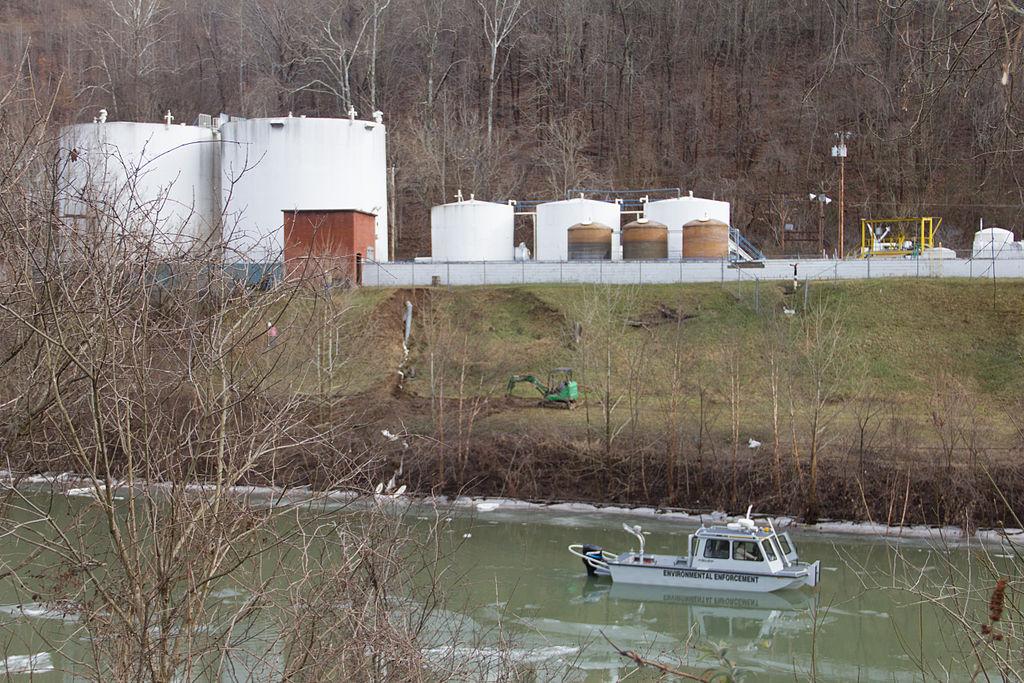As most of the individuals reading this article already know, the water provided by West Virginia American Water in nine counties, which spanned an area affecting approximately 300,000 households, was declared safe for drinking and other uses. Seventy-five hundred gallons of 4-methylcyclohexane methanol or MCHM, a chemical used to wash coal before it goes to market to reduce ash, began leaking into the Elk River several weeks ago from an old storage tank owned by Freedom Industries, a corporation that declared bankruptcy shortly after the incident.
I use the word “began” very lightly because, frankly, there are a lot of things that aren’t clear about this chemical, about this spill, and about the regulation of numerous other chemicals in West Virginia. As a resident of the capital city of Charleston, this is an issue that directly affects me. The unanswered questions must end. We, as citizens of West Virginia and citizens of this country, deserve to be informed.
According to an article in the Washington Post, “The 15-page material safety data sheet for the chemical, which is manufactured by Tennessee-based Eastman Chemical, uses the phrase ‘no data available’ 152 times.” If that isn’t an outrage, I must not know the definition of that word. I remember reading articles regarding what was believed to be the toxicity of MCHM and subsequent articles backtracking that information because it was deemed incorrect.
Initially, the Centers for Disease Control and Prevention (CDC) stated that the water would be safe if it contained less than one part per million of the chemical. Later, after consulting with the CDC, the Department of Health and Human Resources said that pregnant women shouldn’t drink the water until officials said it was completely chemical-free. This raised an important question in my mind: if the water wasn’t safe for a pregnant woman, why would it be safe for any other human being?
“It was, apparently, no one’s job to regularly monitor Freedom Industries’ tanks along the Elk, even though state officials knew that hazardous chemicals were sitting near the West Virginia American Water intake,” read an article published by The New Yorker. Although this spill was horrendous, it really wasn’t that surprising. For years, the coal industry used countless chemicals tested for their effects on humans, Freedom Industries housed chemicals in tanks that were old and most certainly in need of restoration, and the plant’s location just upstream from the water system’s opening was known to be potentially hazardous.
To some, this disaster did not come as a surprise due to prior experience. “I watched the coal industry poison our water for years. Now they’re telling us not to drink the water? We’ve been dumping this stuff into unlined ponds and into old mines for years,” said a former West Virginia miner in an interview with Business Insider. Why is West Virginia being exploited for the industries of coal and chemicals? The ways in which these resources are harvested can and should be regulated, yet it has been 38 years since Congress passed legislation regulating toxic chemicals, as stated by the Washington Post. Needless to say, this picture is far from a pretty one.
On February 11, about a month after the initial spill of MCHM, a significant amount of coal sludge that resulted from washing coal with water and chemicals before it was shipped elsewhere, otherwise known as slurry, poured into a stream in Kanawha County. “This has had a significant, adverse environmental impact to Fields Creek and an unknown…impact to the Kanawha River,” according to an interview with secretary Randy Huffman of the State Department of Environmental Protection published in the Charleston Gazette. According to the same interview, the coal slurry contained substances that were likely more toxic than MCHM, and approximately 108,000 gallons spilled into the creek.
This story, along with the stories that will most likely follow, are worthy of national attention and have received that sort of recognition, but I fear this recognition will soon be marginalized. Even politicians who claimed to support West Virginia, like Shelley Moore Capito and Joe Manchin, seemed to avoid casting guilt anywhere and looked for sources of accountability. This is not an issue to be forgotten, especially by people who represent our state. Unfortunately, I fear that locally we will be hearing about the chemical spill and its effects for years to come. It is high time we take action to protect the health of our people and environment and stop protecting every cent made by big business and industry.

Leave a Reply